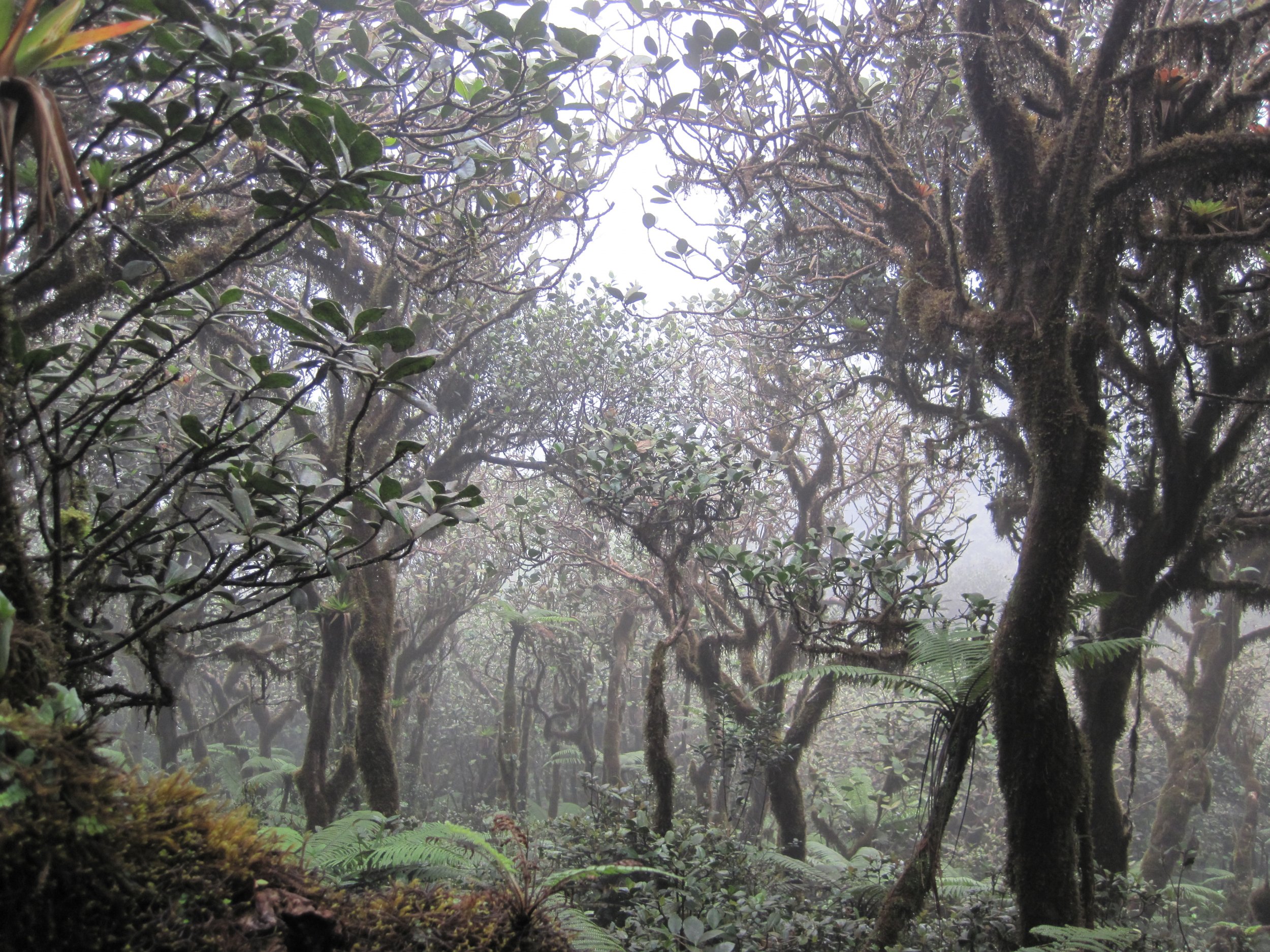
Between 60 and 80 percent of the cloud forests in the Western Hemisphere could shrink and dry within the next 25 years as a result of climate change, according to a study published in the journal PLOS ONE.
Cloud forests—which are located high on tropical mountains—are among the most biodiverse ecosystems on Earth, hosting an array of unique species that are specially adapted to the wet environment.
These forests frequently experience heavy rainfall and are often shrouded in mist as moisture-laden air is deflected upward by the mountains, according to the Encyclopedia Britannica. They are environments characterized by short and crooked trees covered in moss and ferns.
However, if greenhouse gas emissions continue increasing at current rates, the authors of the study, from the U.S. Forest Service and Colorado State University, suggested that as much as 90 percent of Western Hemisphere cloud forests could be affected by 2060.
The authors said that climate change will cause fewer and thinner clouds to form at higher elevations, while also creating drier conditions, which will affect the functioning of these ecosystems.
This is significant because cloud forests play an important ecological role: The trees, plants and lichens that they contain intercept huge amounts of water vapor, supplying significant amounts of water to streams. In fact, in drier areas, cloud forests are sometimes responsible for up to 75 percent of stream water.
Furthermore, numerous animal species depend on these magnificent ecosystems. For example, monarch butterflies spend their winters in the cloud forests of Central Mexico where the cloudy environment keeps temperatures stable, thus providing them with a safe haven.
According to the authors, the study is the first to quantify the effects of climate change on cloud forests across continents.
To do this, the researchers investigated how climate change would affect cloud immersion—a feature that cloud forest species are uniquely adapted to. First they mapped all the areas covered by cloud forests in the Western Hemisphere and combined this with data from climate and ecological studies stretching back more than half a century.
Then, taking future greenhouse gas emission scenarios into account, they created projections for the extent of future cloud forests in different regions, as well as relative humidity—a measurement that can determine the frequency and density of clouds.
Worryingly, the researchers predicted that virtually all the cloud forests in some regions, such as Mexico, Central America and the Caribbean, would experience a reduction in cloud immersion. They said this reduction would occur because increased temperatures over land could force air to travel further up mountains before it cools sufficiently to form clouds. This would reduce the amount of clouds and, as a result, the area of cloud forests.
Previous studies suggested that cloud immersion could increase in some forests and decline in others. But the latest paper projected that increases would only be seen for about 1 percent of cloud forests in the Western Hemisphere across a handful of regions in South America.
Uncommon Knowledge
Newsweek is committed to challenging conventional wisdom and finding connections in the search for common ground.
Newsweek is committed to challenging conventional wisdom and finding connections in the search for common ground.
About the writer
Aristos is a Newsweek science reporter with the London, U.K., bureau. He reports on science and health topics, including; animal, ... Read more
To read how Newsweek uses AI as a newsroom tool, Click here.








